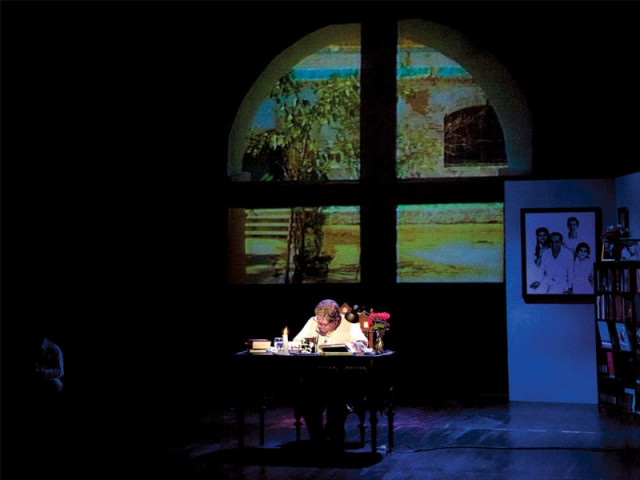
The legendary poet of the 20th century sits at his desk, looking across at a portrait of one of his idols, Vladimir Lenin. And so begins an autobiographical narration of the life of one of the greatest poets of the South Asian subcontinent.
The poet, a regular ‘guest’ of the despotic rulers at the notorious Lal Qila (Red Fort) and other prisons, begins his story, how his father encouraged him to join a maddrassa at a small village, Kala Qadir, near Sialkot and get education. The immortal penman speaks of how his father then pushed him to get a formal education.
Now at school, the young genius starts writing poetry. Suddenly, the actor portraying him — Muhammad Qavi Khan — is interrupted by Rahat Multanikar, who sings “Raqeeb Se”. He speaks of losing his father, meeting his good friend MD Taseer, father of the late Salman Taseer. He speaks of watching Bhagat Singh’s revolutionary movement and the inspiration it gave him. And then, he speaks of Alys, his future wife, and one of his great inspirations.
A short interview of the woman behind the man plays in the background. Alys speaks of how her future husband gave her a ring that he had bought with borrowed money. The crowd laughs as she recounts how there was no way he could have paid off the loan.
He speaks of the poem he wrote when his predecessor as the greatest poet of the 19th century, Muhammad Iqbal, went to his final resting place.
Along the way, he recounts the story of how Dr Rashida Jahan, a progressive poet and writer, in a literary setting, appreciated his work, but advised him that while love is beautiful, the miseries of humanity deserve our attention. “Here, my pain became pointless, and humanity’s pain became my own. I joined the voices of revolution, truth and justice”. Faiz wrote the classic poem Mujh se pehli si muhabat meri mehboob na maang which became the agenda of liberation-loving youth across India.
The story moves on to his political struggle. In between, Multanikar would perform some of his more political poems.
As his politics earned him a life in jail, and then in exile in London, he spoke of how, standing amid towering buildings and lush gardens, he missed his people, for as wretched and poverty-stricken they may be, they were, and would always be, his people.
Later the narrative weaved through his Lenin Award and Zia’s coup, when, against the advice of his hosts, he chose to return to Pakistan after receiving Lening Peace Prize in Moscow knowing well he would be welcomed with open handcuffs. Through his struggle, he spoke of the loss of two people who he admired greatly, Lady Shaukat Haroon, who had him appointed principal of Abdullah Haroon College in Liyari, Karachi, and Zulfikar Ali Bhutto. On the screen behind him, some famous poems of Faiz sung by Mehdi Hassan Khan, Iqbal Bano and Nayyara Noor and others were played.
The play ended with the end of the legend’s mortal life — the performance earning a standing ovation for the artist, noted writer Mazharul Islam, who conceived the programme, director Ahmad Aqeel Ruby, and the Parveen Shakir Trust, which had organised the memorable event.
Later, awards were distributed for various works of literature.
The “Aks-e-Khushbu” award for the best poetry book of 2009 went to Shehzad Nayyar for “Chak se Utre Wajood”, for 2010 it went to Hassan Abbasi for “Ik Sham Tumharay Jaisi”, and Ahmed Ataullah got the 2011 award for “Hamaisha”.
Qavi Khan announced a personal donation of Rs100,000 for the trust, before being overcome with emotion when he spoke of how honoured he was to portray Faiz, later saying that he will never give up the shalwar kameez he was wearing, because, for a few hours, in those clothes, he was Faiz.
Additional input by Vaqas Asghar
Published in The Express Tribune, October 8th, 2012.




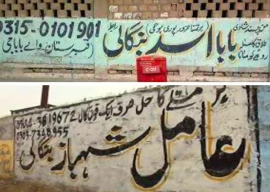
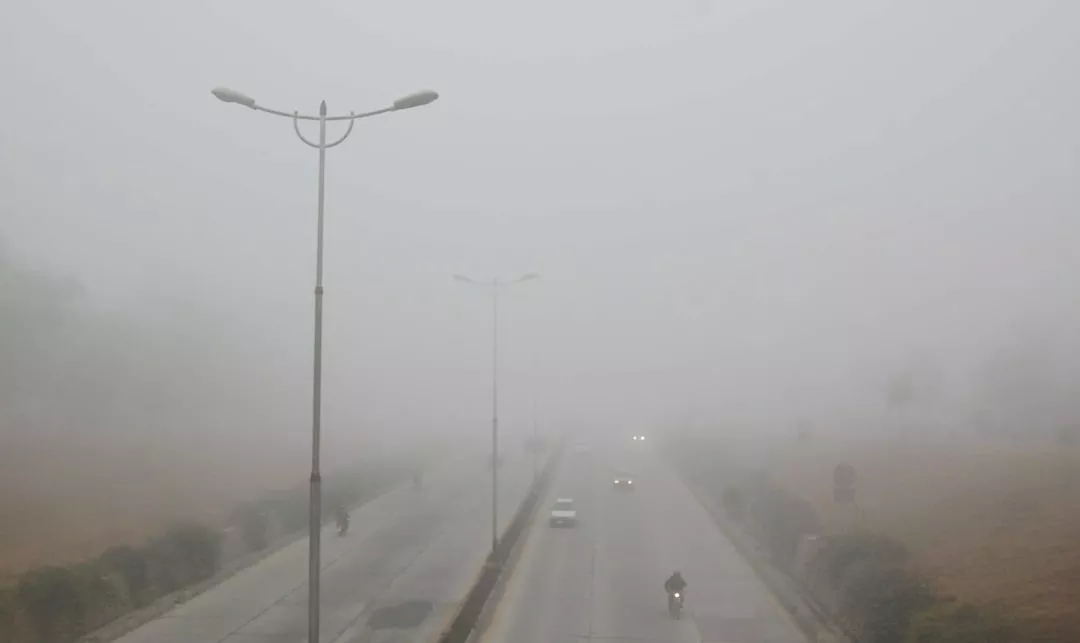
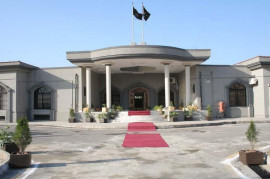




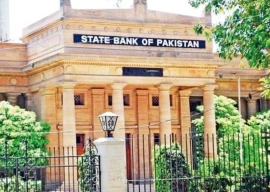
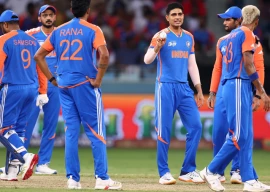







COMMENTS
Comments are moderated and generally will be posted if they are on-topic and not abusive.
For more information, please see our Comments FAQ